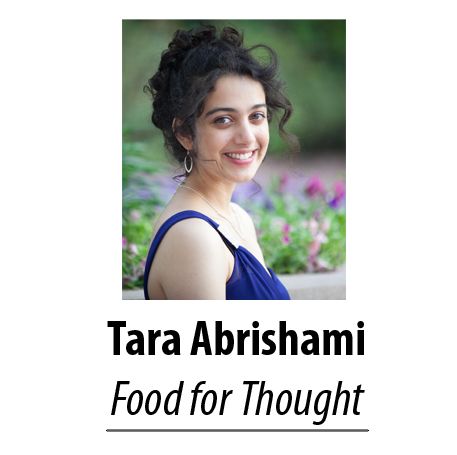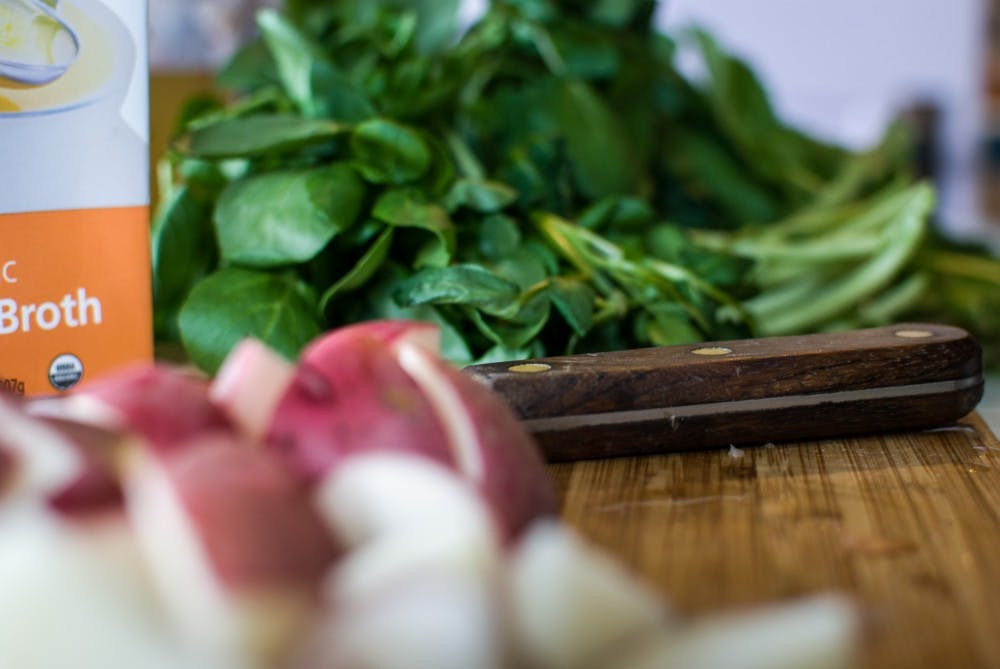
Before I came to college, I cooked occasionally but almost never made anything more complicated or more interesting than frozen vegetables and pasta. I have always loved to eat, but this never translated into an interest in cooking. I was very happy eating my mother’s delicious food, and aside from being a helpful daughter, there was really no reason for me to think too much about the kitchen.
Well, I’ve found my reason now. As someone who values her food for both excellent nutrition and taste, college eating is a hard adjustment. As a freshman living in AMR I, I lack even a kitchenette to prepare the most basic food. And it seems like day after day, I check the menu at the FFC and pray for plentiful vegan options to no avail. Vegan eating is hit-or-miss at the FFC, and too many days go by where I feel like I haven’t eaten anything good in forever.
My eating struggles have resulted in a reliance on the bars, fruit and canned soups I have in my room. This has made me realize that quality food is even more important to me than I’d previously thought.
(Note: for a tasty bar with healthy and whole ingredients, check out Larabars. The ingredients in the apple pie flavor, which I highly recommend, are dates, almonds, unsweetened apples, walnuts, raisins, and cinnamon.)
In fact, the decrease in quality of the meals I’ve been eating has increased the quality of my ideal food. Enter scratch cooking.
The idea came to me slowly. After all, in this day and age, cooking everything from scratch is radical and seemingly unnecessary. Bread is in high supply at any grocery store; why should anyone make their own?
But I realized that for someone like myself, an undeniably picky eater with a vested determination in eating good food, scratch cooking wouldn’t just be worth the trouble — it would actually be enjoyable.
There are a number of tangible benefits to scratch cooking, other than attracting a full house at dinner parties. Since raw ingredients such as flour and salt tend to be much cheaper than, for example, a loaf of bread, scratch cooking has the potential to save a lot of money. And since I will be making everything I eat from scratch, there’s no chance anything has any compromised ingredients like preservatives or high-fructose corn syrup, making scratch cooking a very healthy lifestyle.
But, though I am a health advocate and saving money is always useful, I am most excited because of what this means for my stomach. I can have coconut-creamed spinach whenever I want, even though the FFC only serves it once a month. I can flavor everything to my own tastes and never again have to douse my plate in salt or cringe at an overly sweetened dish.
Most of all, cooking from scratch will let me fully understand my inner foodie. I couldn’t name my favorite herb, or explain how to make really good curry, or tell you what spice makes tofu yellow the way I love it. After scratch cooking, I’ll know all that and more.
So, now that I’ve told all of you, it’s official: Scratch cooking is my winter break project. I’m going to make everything from scratch: bread, peanut butter, pasta, pasta sauces, juice... I’ve even considered trying to press my own olive oil. I’m sure it’ll be quite the adventure, figuring out how to make bread that actually rises and has the texture it’s supposed to. Wish me luck...
And if things go my way, hopefully I’ll have gained the Freshman 15 by the spring semester!





